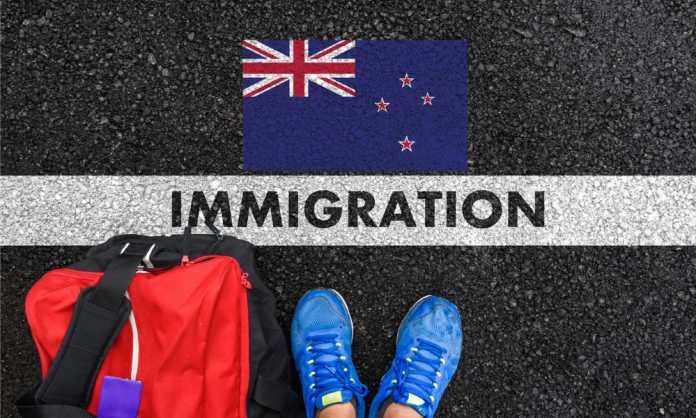The Golden Visa Program of UAE is the latest program to join the Residency by Investment bandwagon. Launched in May 2021, it is welcome news for many wealthy expatriates living in the UAE and outside of it. These expatriates, with plans to secure permanent residency in the United Arab Emirates, have been eagerly waiting for such a program to be introduced by the UAE government.
This program will offer a lot of flexibility, freedom, and security to investors, especially those living in the UAE, who previously had to adhere to very stringent do’s and don’ts when it came to doing business in the UAE.
The Golden Visa Program essentially grants people who fall into the following categories long-term residency (5 to 10 years): Investors, Entrepreneurs, Individuals with exceptional talents such as researchers, Medical Professionals, and those in the scientific and knowledge fields, and exceptional students.
The greatest advantage would most likely be security; by issuing the Golden Visa, the UAE government has demonstrated its commitment to offering expatriates, investors, and virtually anyone wishing to make the UAE their home with an additional reason to feel comfortable about their future.
Eligibility for a 10-year visa:
The following categories are entitled to apply for a 10-year residence visa in the UAE.
1. Investors in public investments of at least AED 10 million
The investment may take many forms such as:
- A deposit of at least AED 10 million in an investment fund inside the country
- Establishing a company in the UAE with a capital of not less than AED 10 million
- Partnering in an existing or a new company with a share value of not less than AED10 million
- Having a total investment of not less than AED 10 million in all areas mentioned, on condition that the investment in sectors other than real estate is not less than 60 percent of the total investment.
Conditions:
Granting a visa is subject to the following conditions:
- The amount invested must not be loaned.
- The investment should be retained for at least three years.
- There should be financial solvency up to AED 10 million.
Visa can be extended to include business partners, on the condition that each partner contributes AED 10 million.
The long-term visa can include the spouse and children, as well as one executive director and one advisor.
Investors from abroad may apply for a multiple-entry permit for a six-month period.
2. Persons with specialized talents
This includes specialized talents and researchers in the fields of science and knowledge such as doctors, specialists, scientists, inventors, as well as creative individuals in the field of culture and art. The visa advantage extends to the spouse and children. All categories are required to have a valid employment contract in a specialized field of priority in the UAE.
Conditions:
Granting a visa is subject to the following conditions:
- Scientists must be accredited by Emirates Scientists Council or holders of the Mohammed Bin Rashid Medal for Scientific Excellence.
- Creative individuals in culture and art must be accredited by the Ministry of Culture and Youth.
- Inventors must obtain a patent of value, which adds to the UAE’s economy. Patents must be approved by Ministry of Economy.
- Exceptional talents must be documented by patents or scientific research published in a world-class journal.
- Executives must be owners of a leading and internationally recognized company or holders of high academic achievement and position.
- Doctors and specialists must meet at least two of the following conditions:
- A Ph. D. degree from one of the top 500 universities in the world (refer to the Federal Authority for Identity and Citizenship website for information)
- An award or certificates of appreciation in the field of the applicant’s work
- Contribution to major scientific research in the respective field of work
- Published articles or scientific books in distinguished publications in the respective field of work
- Membership in an organization related to the field
- A Ph.D. degree, in addition to 10-year professional experience in his/her field
- Specialization in areas of priority to the UAE
Eligibility for a 5-year visa
The following categories are entitled to apply for a 5-year residence visa in the UAE
1. Investors in a property in the UAE
Conditions:
Granting a visa is subject to the following conditions:
- The investor must invest in a property of a gross value of not less than AED 5 million.
- The amount invested in real estate must not be on a loan basis.
- The property must be retained for at least three years.
2. Entrepreneurs
This category includes those having an existing project with a minimum capital of AED 500,000, or those who have the approval of an accredited business incubator in the country.
The entrepreneur is allowed a multi-entry visa for six months, renewable for another six months. The long-term visa includes the spouse and children, a partner, and three executives.
3. Outstanding Students
This includes:
- Outstanding students with a minimum grade of 95 percent in public and private secondary schools
- University students within and outside the country having a distinction GPA of at least 3.75 upon graduation.
The long-term visa includes families of outstanding students.
Program benefits
- Foreign nationals can live, work, conduct business, and study in the UAE without the need for a national sponsor under the Golden Visa Program
- Foreign entrepreneurs and investors are also permitted to own 100% of their businesses in the UAE
- These visas will be issued for a time period of 5 or 10 years and will be renewed automatically
- Investors can enjoy a very high quality of life in UAE
- Due to its strategic location in the Middle East, UAE is extremely well connected to all major cities and business hubs in Asia, Europe and North America, making it very easy for investors to travel and conduct or expand their business
This article is contributed by Ms. Dishita Sheth, Intern at Ajmera Law Group











